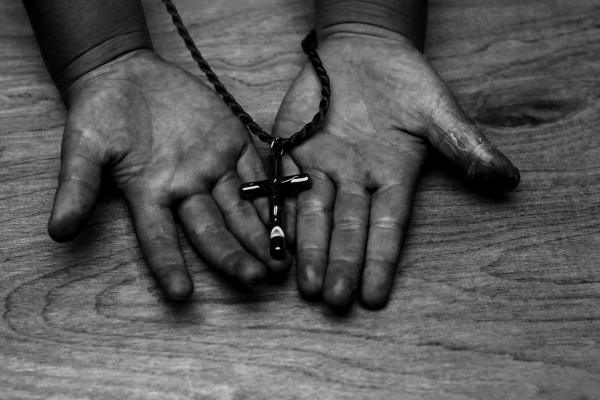Three weeks ago, on Aug. 7, the American public had ample summer entertainment choices for killing time. There was the release of the latest Marvel film, Fantastic Four, which despite its fantastic failure with critics still had a $26.2 million opening. There was also the first GOP presidential primary “debate,” which guest starred The Donald and drew 24 million viewers, making it the highest-rated primary debate in television history.
Meanwhile, in the Middle East, radicals weren’t killing time at all, but making further advances. That same day, ISIS attacked Qariyatain, a strategically located town in the Syrian province of Homs. The attack is said to have resulted in at least 230 kidnappings.
August 7 was already a day of infamy in the Christian history of the region. It was already known as “The Day of the Martyrs” within the Assyrian Christian community. On that day in 1933, as many as 3,000 Assyrian Christians were massacred in Simele (northern Iraq).
Nor should we forget what happened on August 7 last year. That’s the day ISIS captured Qaraqosh — the “Christian capital” of Iraq — forcing Christians to flee the Nineveh Plain to Kurdistan, eliminating 1,900 years of Christian presence in Nineveh.
Many American Christians say they are hungry for leadership, but what are we actually doing beyond indulging in fictional stories of Mr. Fantastic, Invisible Woman, Human Torch, and The Thing battling evil, or the barely less fictional “leadership” on display in contemporary politics?
We need to do more than complain from the comfort of our air-conditioned family rooms. The stakes could hardly be higher for Christians and other religious minorities in the greater Middle East — they are at risk of extinction or permanent exile. The international community has essentially given up, as it has little funding and even less vision and resolve. Hence there is a vacuum of leadership that needs to be filled. We need to identify practical ways of bringing people and resources together to combat evil — indeed to transform it with good.
For American Christians one of the best places to start is with proactive engagement of the refugee crisis. The deprivations endured by refugees, including lack of accessible education, are exponentially increasing the risks of downward spiral ultimately leading to them joining daesh because it is their only means to survive. We need to invest in refugees, because it is an investment in the next generation’s critical thinking such that messages of intolerance and violence espoused by ISIS can be refuted.
It will be a financially costly investment. But it will be less costly than the vast sums currently being spent on hard-power responses, to little avail. As of July 31, the U.S. Department of Defense's average daily cost spent on Operation Inherent Resolve: Targeted Operations Against ISIL Terrorists is estimated to be $9.8 million.
An important part of the equation — which is currently missing — is the role of the private sector. This very topic was discussed at the recent 2015 World Economic Forum on the Middle East & North Africa (WEF MENA) where a “Responding to the Refugee Crisis” panel named three priorities: shifting donor mechanisms to focus on refugees' priority needs; strengthening resilience in host countries; and ensuring human security through education.
There, former British Prime Minister Gordon Brown asked, “Can the international community, including private sector, including foundations, be bold enough to support an initiative (re education)?…We need the money...”
As it stands, most government spending continues to focus on hard power, and some of the soft power programs that did exist have even been cut. Like it or not, then, a challenge and opportunity is before us — lay businessmen and businesswomen, mothers, fathers, college students, everyone — to work together to garner sufficient support to help make up for the gaps in our current policy.
A positive example of this can be seen through the work that the communications technology company Ericsson is doing to increase education, innovation, and technology for refugees. At the WEF MENA, Elaine Weidman-Grunewald of Ericssons's Sustainability and Corporate Responsibility program shared how the company launched a cloud-based education system primarily focused on secondary education for girls — and how they are expanding that program in Kurdistan to work with the IRC to deploy the solution in different types of settlements such that internally displaces persons are able to have access to the internet and education.
Will Christian-owned corporations step up to the plate to help cope with the "biggest humanitarian emergency of our era?" As Chris Seiple and Brian Grim argue in their recent World Economic Forum article, “Socially responsible business is certainly a theme championed by religious leaders, including Pope Francis, Sojourner’s Jim Wallis, the Dalai Lama, and the Archbishop of Canterbury.”
Wells Fargo recently identified four market transformations they expect in 2015. The fourth is that business will shift from primarily being about making money to being about doing good.
The time is now for the Christian private sector to play a leading role in this transformation. We need to work together — across religious, ethnic, and political lines — to do good; to defeat evil; to help rescue, restore, and return Christians and others to their homes. To prove that humanity is still capable of doing something genuinely fantastic.
Got something to say about what you're reading? We value your feedback!
